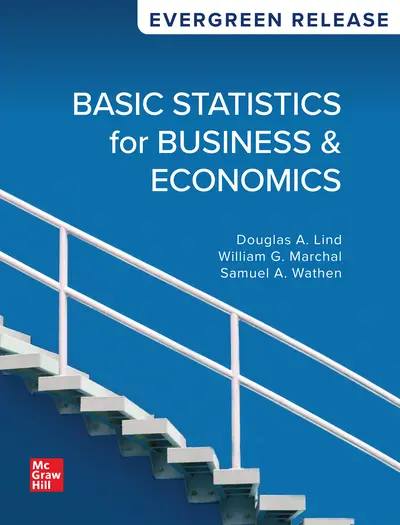The Future of global evolution of Business and Economics is likely to impact global economies
The Future of global evolution of Business and Economics is likely to impact global economies
Blog Article
Comprehending Economic Principles for Better Company Decision-Making
In the complex landscape of contemporary business, a detailed understanding of economic concepts can dramatically boost decision-making processes. By examining factors such as market structures and consumer habits, organizations can tailor their techniques to align with affordable dynamics and consumer needs. In addition, insights right into need flexibility and possibility expenses supply a framework for enhancing resource allocation. The application of these financial concepts typically discloses unanticipated difficulties and possibilities that can redefine calculated methods. What implications do these insights hold for the future of company method?
The Fundamentals of Economic Theory
Economic concept acts as the structure for recognizing how companies and people make options in the existence of deficiency. At its core, economic concept analyzes the allotment of restricted resources to satisfy unlimited wants. This fundamental principle of scarcity necessitates compromises, compelling decision-makers to examine the advantages and prices related to various alternatives.
Both key branches of economic concept are microeconomics and macroeconomics. Microeconomics focuses on individual representatives, such as customers and companies, examining their habits and interactions in particular markets. It stresses concepts like supply and need, rate flexibility, and market balance, which are essential for comprehending how rates are determined and how sources are dispersed.
Conversely, macroeconomics examines the economic situation in its entirety, resolving more comprehensive problems such as inflation, unemployment, and financial growth. It offers insights into systemic phenomena that influence all financial representatives, directing policymakers in crafting efficient economic techniques.
Ultimately, a solid grounding in economic theory is necessary for efficient organization decision-making. By understanding the principles of shortage, compromises, and market characteristics, companies can better navigate intricate environments and make informed choices that improve their competitive benefit.
Trick Economic Indicators
Key financial indicators serve as vital tools for assessing the health and wellness and direction of an economy, supplying valuable insights for organization decision-making. These signs are measurable measures that show the economic performance and can be classified right into leading, lagging, and coincident indicators.
Leading indications, such as consumer self-confidence indexes and stock exchange patterns, anticipate future financial activity, permitting businesses to prepare for changes in the marketplace. Lagging signs, like joblessness prices and corporate revenues, supply understandings right into the economic situation's previous efficiency, assisting organizations to review lasting trends. Coincident signs, such as GDP development and retail sales, fluctuate all at once with the economy, offering a real-time snapshot of financial conditions.
Recognizing these indicators allows businesses to make informed decisions relating to investments, source allotment, and critical planning. As an example, a rise in consumer self-confidence might prompt firms to enhance manufacturing in anticipation of higher demand. Alternatively, rising joblessness rates might lead to a reevaluation of growth strategies. By very closely keeping an eye on these vital economic indications, organizations can navigate uncertainties and position themselves effectively in the ever-changing economic landscape, eventually enhancing their decision-making processes and long-lasting success.

Market Frameworks and Dynamics
Comprehending market structures and characteristics is vital for businesses intending to grow in affordable atmospheres. Market frameworks, extensively categorized into perfect competition, monopolistic competition, oligopoly, and monopoly, considerably influence prices methods, product differentiation, and affordable behavior. Each framework presents special obstacles and possibilities that can dictate a firm's critical direction.
Oligopolies, defined anonymous by a couple of leading gamers, lead to synergistic decision-making; companies must thoroughly think about rivals' responses to their actions. Monopolies exist when a single firm controls the market, resulting in maximum prices power however typically drawing in regulative examination.
Comprehending these characteristics makes it possible for organizations to prepare for market fads, adapt techniques, and optimize resource allotment. Furthermore, acknowledging exactly how external elements like innovation and policy impact these frameworks can boost calculated preparation. By understanding market structures and dynamics, firms can make enlightened choices, ultimately boosting their affordable position and driving lasting growth.
Customer Behavior Insights
Consumer habits plays a critical role in forming service techniques and outcomes. Recognizing just how consumers make purchasing choices, their preferences, and the elements influencing their actions can substantially enhance a company's capacity to satisfy market demands. Trick understandings right into customer actions can be originated from assessing demographics, psychographics, and behavioral patterns.
Demographic variables such as age, sex, education, and revenue level provide a foundational understanding of target audience. Psychographics dive deeper, discovering consumers' perspectives, values, and way of lives, which can affect brand commitment and product understanding. Behavior insights, such as buying frequency and response to promotions, are important for customizing advertising efforts.
Furthermore, external elements like financial problems, cultural patterns, and technological improvements likewise affect customer choices. As an example, throughout financial downturns, customers might focus on important items over luxury products, modifying demand patterns.
Using Business Economics to Approach
Insights gained from consumer habits are critical in creating effective business techniques. By leveraging economic concepts, businesses can better comprehend market dynamics, enhance resource appropriation, and improve affordable placing. Evaluating demand flexibility, for instance, enables firms to adjust pricing strategies to take full advantage of profits while staying appealing to consumers.
In addition, recognizing market division permits organizations to customize their offerings, guaranteeing they satisfy the particular needs and preferences of varied customer teams. Business and Economics. This targeted technique improves client satisfaction and fosters brand name commitment

Integrating video game theory into calculated preparation likewise Find Out More supplies insights right into competitive habits, permitting companies to prepare for rival activities and create counter-strategies efficiently.

Verdict
Finally, a comprehensive understanding of economic principles substantially boosts business decision-making. By taking a look at market frameworks, reviewing consumer behavior, and evaluating crucial financial indicators, firms can develop efficient methods that align with market demands. The application of ideas such as demand elasticity and chance expenses better help in maximizing source allocation and investment choices. Eventually, integrating these economic theories promotes enhanced calculated options, assisting in far better expectancy of market fads and affordable activities, consequently driving earnings.
In the complicated landscape of modern organization, a comprehensive understanding of financial principles can significantly enhance decision-making processes.Leading indications, such as customer confidence useful source indexes and supply market fads, anticipate future economic task, enabling companies to anticipate adjustments in the market. By very closely keeping track of these key financial signs, companies can browse uncertainties and position themselves properly in the ever-changing economic landscape, ultimately boosting their decision-making processes and lasting success.
By leveraging financial principles, organizations can better recognize market dynamics, enhance resource allocation, and improve competitive placing.In conclusion, a detailed understanding of economic concepts considerably boosts company decision-making.
Report this page